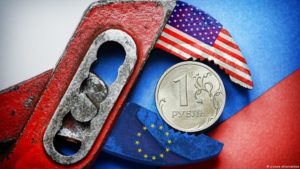The conversation around the lack of accessible period products on the IE Segovia campus has been growing, especially among emerging student initiatives. Manuela Moscoso is a first-year Bachelor of Communications student, and she is in the process of presenting a project to the IE Sustainability Office that would see the free distribution of reusable menstrual products (menstrual cups and reusable pads) around campus, as well as a workshop regarding their use every semester.
What incentivized you to start this project?
Once, I got my period when I was at university, and I hadn’t brought a pad or tampon. Since there are no machines for period products in the bathroom, I had to ask many of my classmates for help. I eventually complained about the lack of access to products on campus, and I suggested the installation of machines in the bathrooms. However, I was told that this initiative was already attempted by the Gender Equality Officer, and the board rejected it due to sustainability policies—to ensure a “zero-waste” campus. At first, I felt upset and mad over this response, but after looking into the ecological impact of period products, I was astonished by the harm that these single-use products have on the environment. Seeing the effects that they have on sea life especially motivated me to continue the project. Then, the president of the Gender Equality Office, Soraya, presented me with the idea of providing a more sustainable option for people who menstruate on campus. This inspired me to begin the project.
What was the process? Have you made progress?
Yes, I began the project through investigation, to produce a written report regarding the environmental impacts of single-use period products as well as the phenomena of period poverty. And now, I am preparing to give a presentation on May 4th, which will include all of the details of the project and an interview video highlighting the importance of this project.
Why is this project important?
This project is a step forward for the student community. It would help in decreasing the perception of periods as taboo. Personally, I sometimes felt very uncomfortable bringing up the topic of periods when in a group of men. Therefore, the way in which the project is set out, including through the workshops and overall period visibility, will further the conversation and awareness about periods in the student body. Unequivocally, the creation of openness regarding period sustainability will improve the environment around campus.
What does this project mean to you?
To me, it signifies empowerment; we should not be afraid to discuss and demand better access to something that is so natural and normal in our lives. Periods are the essence of life. This project is about empowering people who menstruate to own this fact and ensure that their needs are met. Also, this project is a step forward in the conversation regarding how to be conscious of the environment as someone who menstruates.
How do you hope to improve campus life through this project?
Providing these resources to whoever needs them around campus will significantly improve the accessibility of period products, especially since I want to ensure that everyone is aware of them. This measure to improve campus life will provide a more comfortable and practical environment for people who menstruate, especially since we will host workshops to further educate the student body on alternative options. Furthermore, due to the expensive nature of most reusable period products, having them available for free on campus will incentivize people who menstruate to consider a more sustainable, waste-free option.
Manuela’s initiative will provide whoever needs it with accessible, free, and sustainable period products, thus improving student life around campus. This project is one step towards creating an even more comfortable environment around the IE Segovia campus, especially for those who menstruate.






